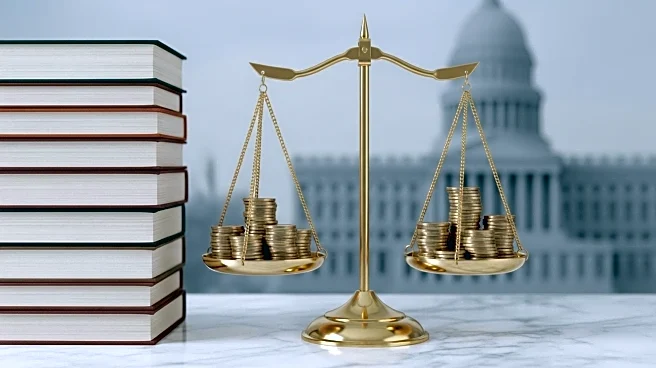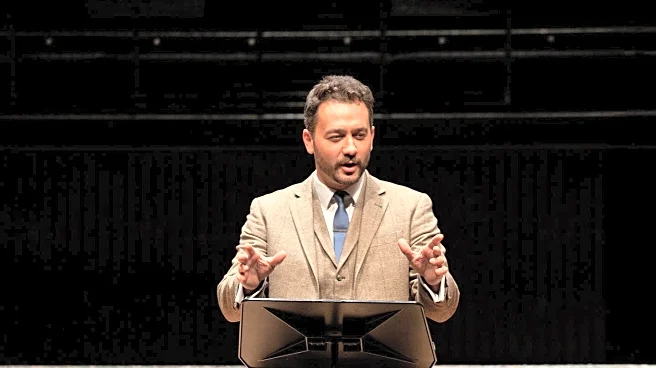What's Happening?
The Trump administration is exploring options to sell portions of the federal government's $1.6 trillion student loan portfolio to private buyers. This initiative, reportedly discussed by senior officials from the Department of Education and Treasury, focuses on selling high-performing segments of the student debt portfolio. The move could impact the management and servicing of loans held by approximately 45 million Americans. The legality and implications of such a sale are subjects of ongoing discussions, with potential legal challenges anticipated.
Why It's Important?
The potential sale of student loans to private entities could significantly alter the landscape of student loan management in the U.S. Private lenders may offer different terms and protections compared to federal management, potentially affecting borrowers' rights and repayment conditions. This shift aligns with broader GOP goals of reducing government involvement in student lending and increasing private sector participation. However, it raises concerns about the adequacy of borrower protections under private management, as private lenders do not have the same legal immunities as the federal government.
What's Next?
If the Trump administration proceeds with the sale, it would require congressional approval and assurances that taxpayers will not incur additional costs. The administration may consult external firms to evaluate the portfolio's value in the private market. The decision could face opposition from stakeholders concerned about borrower protections and the broader implications for federal student loan policy.
Beyond the Headlines
The sale of student loans could trigger broader discussions about the role of government in education financing and the balance between public and private sector involvement. It may also influence future policy decisions regarding student loan forgiveness and debt management strategies.









